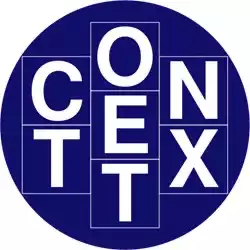
In order to truly understand or fully appreciate anything, we first need to understand and appreciate its context. This phenomenon works in reverse, too: a clear, well told narrative that provides us with context often helps us understand, appreciate and take an interest in phenomena that we might not otherwise have given a second thought. We often see this play out in award-winning, bestselling nonfiction as books on topics that are no longer news, either in the mass media or our social media streams, emerge as cultural reference points. Recent examples include: “The Invention of Nature: Alexander Von Humboldt’s New World;” “The Immortal Life of Henrietta Lacks;” and “Blood in the Water: The Attica Prison Uprising of 1971 and Its Legacy.”
Like Alexander Von Humboldt, Henrietta Lacks, and the 1971 Attica Prison uprising prior to the publication of these books, it can be tempting to believe that we have given libraries and librarianship as much attention as they deserve. That was how I felt before I began my training as a librarian. While I have always loved libraries and I was close to several librarians, I never understood the history of libraries or appreciated the context in which librarians make decisions. Once the faculty at my library school and my librarian colleagues started providing this context for me, I was fascinated and enamored.
I think you will be as well if you take a few minutes to read the American Library Association’s “Library Bill of Rights,” “Freedom to Read Statement,” “Freedom to View Statement,” “Statement on Labeling and Rating Systems” and “Code of Ethics.” For the last six to eight decades these documents, which are also appended as pages 36 through 42 in our recently updated Policies and Procedures Manual, have helped to form the basis and shape the context for every decision made by every library in the United States (they have been lightly amended in the intervening years). The first 35 pages of the Manual and everything else that we do to ensure the Princeton Public Library’s enduring value rely on the ideas expressed in these documents.
The “Library Bill of Rights,” for instance, at 78 years old and in just 191 words, continues to make clear the expectation that, “Books and other library resources should be provided for the interest, information, and enlightenment of all people of the community the library serves,” and then goes on to explain that “all people” really does mean everyone, and that censorship, in all its forms, is anathema to “interest, information, and enlightenment.” This idea, which we refer to as “intellectual freedom,” is a precious resource, one that librarians are devoted to stewarding. The more you read about it, the more you will be as well.
The ConTeXt Unofficial Logo by Taco Hoekwater, released under the Creative Commons Attribution 3.0 License.
